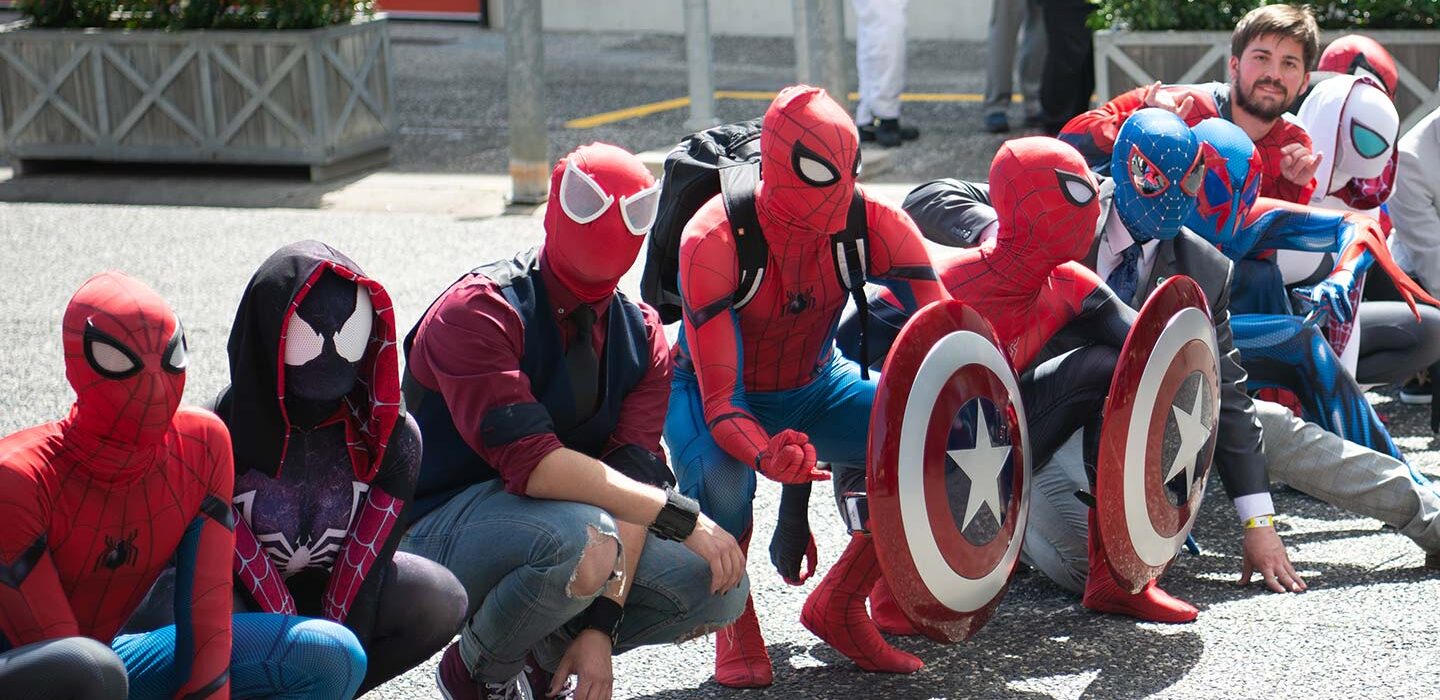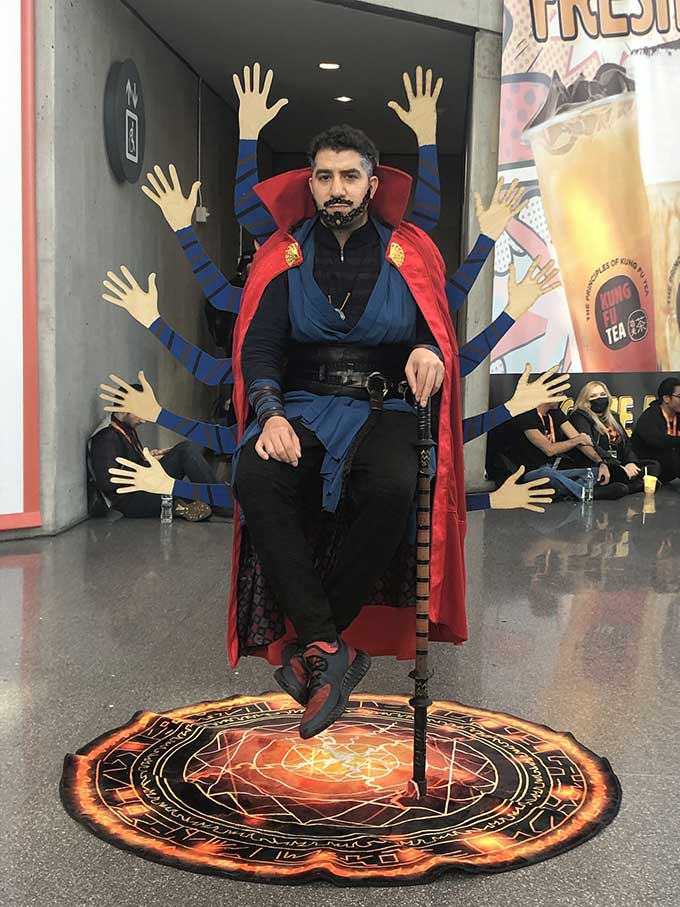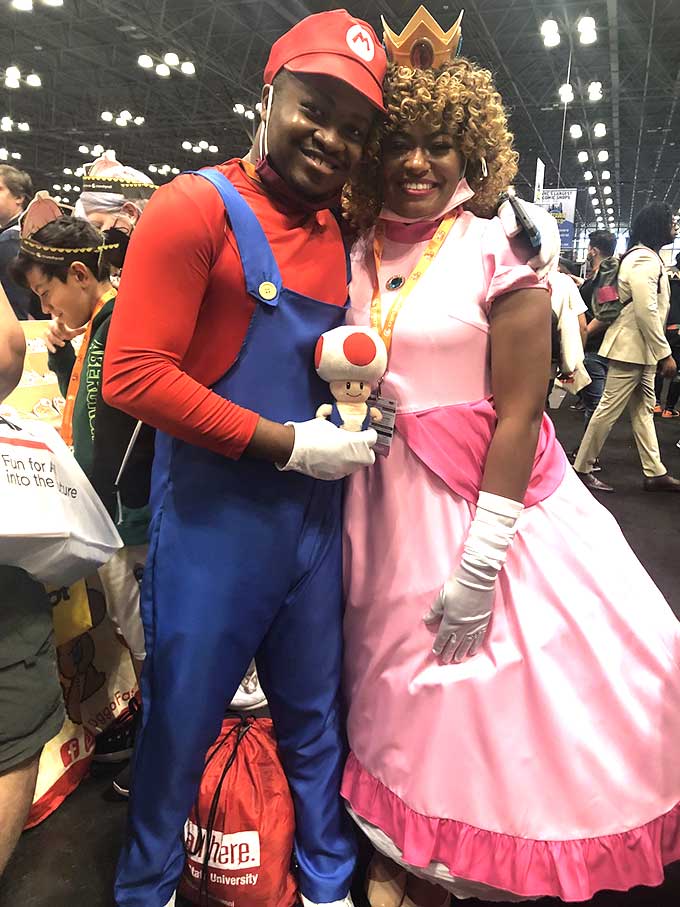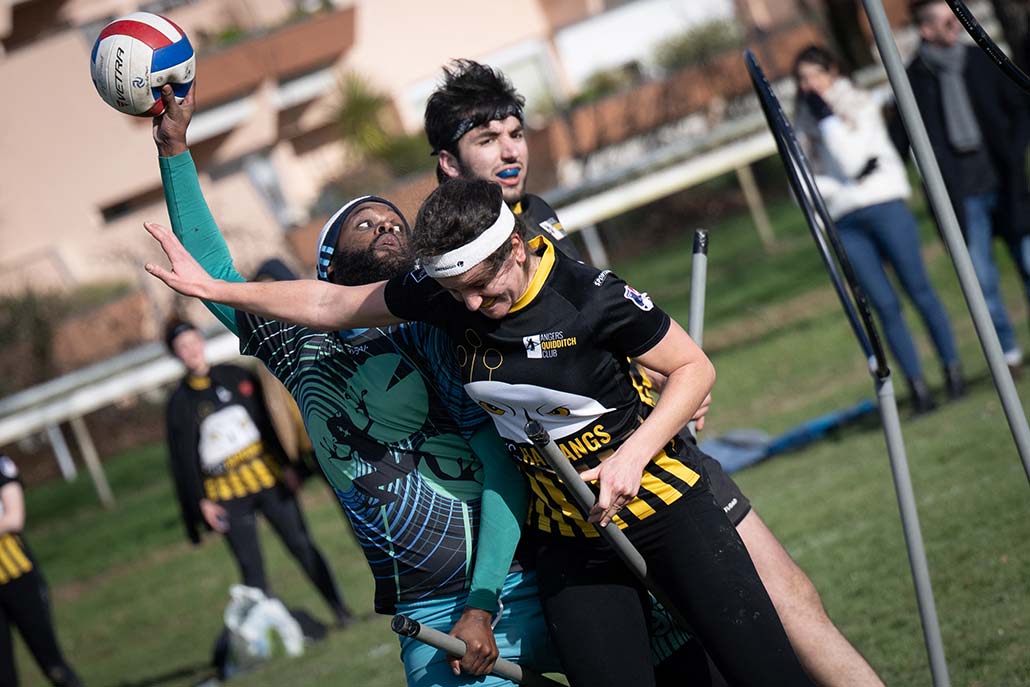Why fandom feels good — and may be good for you
Scientists are uncovering the reasons and rewards of falling in love with fictional worlds

Fellow Spider-Man fans pose in September 2019 for a group photo at OzComicCon in Sydney Australia.
Tranquil Night/Flickr (CC BY-SA 2.0)
New York Comic Con 2022 bustles with a huge cast of characters. One group of friends dressed like Stranger Things teens hangs out in the food court. Others decked out like characters from Super Mario and Avatar: The Last Airbender pose for photos. A Marvel hero, Moon Knight, compliments a Star Wars Mandalorian. All around, fans sporting everything from Pikachu onesies to T-shirts and jeans wander through a sea of booths selling paintings, figurines or LEGO sets of fictional characters.
Every October, nerds of all stripes descend on the Javits Center in Manhattan for this festival of fandom. They show off homemade costumes, get actor autographs, watch sneak previews of new movies and more. No matter what type of fiction someone loves, they’re bound to find fellow fans among these tens of thousands of people, all gathered in the Big Apple to geek out about their favorite media.
Fans from many universes


Of course, attending a comic con is only one way to experience fandom, or be a fan, of some type of fiction. Every day, people dissect new episodes of TV shows with friends and on social media. Fans build and maintain elaborate Wikis for books and movies. They create fan art of beloved characters and reimagine stories through fanfiction. Even casual fans devote time to rereading or rewatching series.
“We all are either fans or know people who are fans of a movie or a TV show or a book,” says Cynthia Vinney. She’s an independent pop-culture researcher and psychologist. She and other scholars are now taking a closer look at the widespread phenomenon of fandom. By studying the many types of media fans, they are gaining new insights into why people get so invested in fictional worlds. They’re also learning about the benefits of fandom.

Falling into fandom
“People are drawn to fandom — no matter what it is that they’re drawn to — for a lot of the same reasons,” says Lynn Zubernis. She’s a psychologist at West Chester University in Pennsylvania. “This is how our brains are wired,” she says. “We get a lot of pleasure from indulging in the things that we love … and the intensity of those feelings is very reinforcing.” Basically: “When we like something, that is immediately connected to us wanting more.”
But people don’t only become fans of fiction because it’s fun. Research suggests that fiction also helps people make sense of the world around them. It can help them find inspiration. It also can offer insights into human nature and what gives our life purpose.
Laramie Taylor is a communications researcher at the University of California, Davis. He asked 360 U.S. adults about why they were fans of their favorite media. People ranked how much they agreed with various statements. Some statements were about the fun of fiction, such as “my favorite series … makes me laugh.” Others were about fiction helping people make sense of the world. For example, “I like my favorite series because it has profound meanings or messages.”
People agreed with both types of statements about equally. Taylor shared these results, last year, in Psychology of Aesthetics, Creativity, and the Arts. Clearly, people have a range of reasons to be fans of fiction — from casual fun to intellectual fulfillment. “But that doesn’t really explain why this happens to some people and it doesn’t happen to other people,” Taylor says.

Educators and Parents, Sign Up for The Cheat Sheet
Weekly updates to help you use Science News Explores in the learning environment
Thank you for signing up!
There was a problem signing you up.
Fandom-prone people
The question of who’s most likely to fall in love with a fictional world is still murky. But some research has connected personality traits to becoming a fan. One of those traits is empathy. That’s the tendency to put oneself in another person’s shoes. People with stronger empathy seem to get more invested in fictional characters, Zubernis says. That can lead to becoming a bigger fan.

The other personality trait affecting whether somebody becomes more of a serious fan is whether they get drawn into the story lines. “It has to do with how much you can be absorbed into some kind of fictional narrative,” Zubernis explains. The experts refer to this as “transportation.” Some people are transported more easily than others. Such mental immersion can make stories feel more real. That, in turn, can foster fandom.
Taylor’s research has shown some support for this. In a 2015 study, he did an online survey of nearly 400 fans of various media. He also surveyed about 160 Star Trek fans standing in line for a movie premiere. Both groups rated how much they agreed with statements such as “movies and shows often affect my mood.” (That gauged each person’s tendency for transportation.) People also rated how much they agreed with statements showing empathy. These included things like, “I often have tender, concerned feelings for people less fortunate than me.”
People higher in empathy tended to be transported more readily. And that, in turn, was linked to being a bigger fan.
Taylor shared these findings in Psychology of Popular Media Culture. But this study shows only that empathy, transportation and fandom are related, he cautions. Proving that certain traits cause stronger fandom would require studying people throughout the process of becoming fans.

Perks of fandom
There’s a lot to like about being a fan. Fictional stories can offer a distraction from stress or a way to connect with other people. And daydreaming about or discussing such imaginary worlds may have very real benefits for mental health.
Take anticipation. Looking forward to stuff — be it a sequel or a new season — is a big part of the fan experience. Some research suggests that anticipating positive events can feel as good, if not better, than the event itself.

“What’s cool about looking forward to something is that you can look forward to something for a long period of time before the thing actually happens,” says Christian Waugh. He’s a psychologist at Wake Forest University in North Carolina. With something to look forward to, Waugh says, “I can at any [time] choose to think about that and get a little bit of a positive emotional boost.”
And it may do more than that, his research suggests. For instance, that uplift can help people cope with stress. In one 2015 study, his team recruited about 70 college students. About 30 were promised that at the end of the study they’d get to view some cartoons they were looking forward to. The other 40 were told they’d get some cartoons they were not excited to see. Then, everyone was told to prepare a speech in five minutes.
Having to prepare a speech made both groups of students feel worse than they did before. But those who were looking forward to seeing cartoons later reported more positive feelings. This was true both before and after their speech prep. Waugh’s team shared these findings in Journal of Experimental Social Psychology.
What’s more, many fans do not just sit around waiting for new content to drop. They make fan art, write fanfiction, do cosplay and make fandom-related memes. “Whatever it is, if it’s tapping into creativity and allowing self-expression, that’s really good for people,” Zubernis says. “It can be really wonderfully stress-relieving.” Research also shows that spending time on such creativity can put people in better moods.
Art begets art
Many fans use their favorite media as a springboard to produce their own creative works, such as this portrait of Harry Potter’s Hermione Granger by @peaceofseoul and this Encanto artwork by @alhuart.
One 2018 study in New Zealand, for instance, tracked more than 650 young adults over two weeks. Each day, participants reported how much time they had spent on creative activities. These could include playing music, painting or writing. Participants also shared how good or bad they felt each day and their level of “flourishing.” That included elements such as having a sense of purpose in life and social connections.
People tended to have more good feelings on days after they spent more time than normal on creative pursuits. This was especially true for high-energy good feelings, such as enthusiasm or excitement. People also tended to report greater flourishing on days after they were especially creative. Researchers shared these findings in The Journal of Positive Psychology.
Finding identity through fandom
For some, the impacts of fandom go far beyond mere mood boosts. Relating to fictional characters can help people learn about and embrace aspects of who they are. Fan communities can play a role, too. As such, “fandom can be part of identity development in a healthy way,” Zubernis says.
Lauren McInroy has studied this among young LGBTQ+ people. McInroy is a social work researcher at the Ohio State University in Columbus. Online fan communities, she notes, often produce creative works that add queer elements to media narratives. Many works of fanfiction and fan art, for instance, portray characters with LGBTQ+ identities.
Fans “are essentially taking [mainstream] content, remixing it and creating representational narratives with their own LGBTQ identities,” McInroy says. This fan-made media, she says, “is a way to see a rich, complex queer story, and to sort of seek yourself out in the content.” This network of creators and consumers can also offer young people an accepting community in which to explore queer identities.
McInroy looked at how fandom impacted the development of young people’s queer identity. She and her colleagues surveyed nearly 5,000 LGBTQ+ people. All were ages 14 to 29 and living in North America. About 3,500 said they had participated in online media fan communities.
Seventy-two percent of those who were involved in fan communities online said this experience had contributed to development of their LGBTQ+ identity. How? Many said that LGBTQ+ representation in fanworks expanded their knowledge of queer identities. Some had explored their identities by creating their own fanworks. Fan communities also offered opportunities to meet other queer people. Those relationships helped young people feel like their queer identities were normal and valid. McInroy and her colleague Shelley Craig shared these findings in 2020 in Psychology of Popular Media.
Those supportive environments may have helped young fans reach identity milestones faster. (Such milestones can indicate levels of self-acceptance.) For instance, young people in online fan communities knew that they were LGBTQ+ over six months earlier, on average, than their peers did. They came out to a friend for the first time about nine months earlier, McInroy and Craig reported in Journal of LGBT Youth in 2018.

Better together
Fan communities create supportive environments for many types of people. And that sense of community seems to be good for fans’ overall well-being, says Stephen Reysen. He’s a social psychologist at Texas A&M University–Commerce.
Reysen found evidence of this in his research. In one study, Reysen and his colleagues surveyed more than 200 college students with different fan interests. The survey measured such things as a sense of purpose in life, self-acceptance and having positive relationships with others. The survey also measured how much people identified as a fan of their favorite interest and how connected they felt with other fans.
In general, the more people felt a connection with other fans, the better their psychological well-being. This seemed to trace to these people having more friends who shared their interests. Identifying as a bigger fan also was linked with greater well-being. But that link was not as strong as the one seen between fan connectedness and well-being. Reysen’s team found similar trends in a survey of more than 2,800 people recruited from anime fan clubs and anime-related websites. The team published its findings last January in Leisure Sciences.
“It’s really [a fan community] that leads to the well-being,” Reysen says. “It’s the connection with other human beings that really helps you.” At least, that’s what the researchers think is happening. A correlation between fan community and well-being doesn’t prove the first caused the second. Maybe people with greater psychological well-being just tend to connect more with other fans.
But it would make sense for fandom friendships to promote well-being, Reysen says. “Belongingness and participating with groups, in general, in psychology research shows that you’re happier.”
That’s not to say fandom is all sunshine and rainbows. “There are positives and negatives in everything, as well as your fandoms,” Reysen says. Groups of fans, like all communities, can become embroiled in drama. TV shows get canceled. Book endings disappoint. But overall, fandom seems to be a normal, healthy and productive part of many people’s lives. So, to all the teen media fans out there: Nerd on.
Surveys of anime fans and other types of media fans suggest that connecting with fan communities may boost people’s psychological well-being. This group of fans is cosplaying as characters from the anime My Hero Academia.







